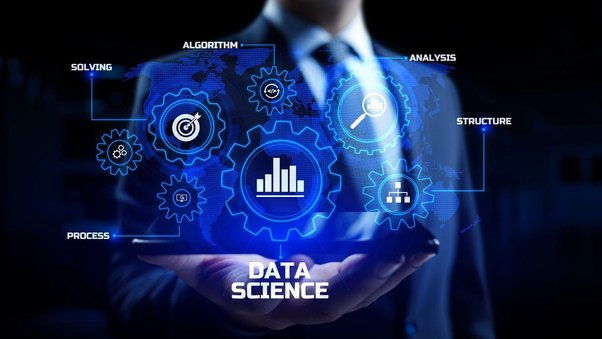Course Description
This is a comprehensive program designed to equip leaners with the necessary knowledge and skills to become proficient data scientists. With a duration long enough to cover all the necessary topics, it’s the perfect choice for anyone seeking an in-depth understanding of these subjects.
Course Objectives:
Develop critical thinking and problem-solving skills to tackle complex data science problems
- Understand and apply mathematical concepts and computational techniques required for Data Science and Machine Learning.
- Understand the Data Science workflow and its components.
- Analyze and interpret data using wide range of statistical techniques such as descriptive statistics, probability, statistical distributions, and statistical inference
- Demonstrate Proficiency in programming languages such as Python and R for data science and machine learning.
- Apply principles of data visualization and storytelling to create impactful data presentations.
- Understand and implement best practices for data preprocessing and cleaning.
- Perform exploratory data analysis and gain insights from the data
- Develop machine learning models and algorithms for predictive analytics and decision making
- Understand math behind popular machine learning algorithms and optimization
- Apply advanced concepts in deep learning, natural language processing, and computer vision to solve real-world problems
- Deploy machine learning models in production environments.
- Work collaboratively on mini projects and case studies to analyze data and generate insights
Learning Outcomes:
After successful completion of this program, a learner will be able to
- Identify and formulate Data Science problems.
- Design and implement data-driven solutions for business problems using machine learning and artificial intelligence techniques
- Analyze and interpret complex data sets using a range of statistical techniques, including descriptive statistics, probability distributions, and hypothesis testing.
- Analyze and visualize data using various software tools, such as Excel, R, Python, Tableau, and Power BI
- Create compelling data visualizations and use data storytelling techniques
- Communicate effectively data-driven insights with non-technical stakeholders and present business strategies and recommendations
- Analyze data using SQL and retrieve relevant information for business decisions.
- Clean and preprocess data to prepare it for analysis and modelling
- Perform exploratory data analysis to identify patterns and trends in data.
- Work with popular machine learning libraries and frameworks
- Build predictive and prescriptive models using regression, classification, clustering dimensionality reduction and deep learning algorithms.
- Perform feature engineering, and model selection for machine learning applications.
- Build and evaluate deep learning models for computer vision, image recognition, object detection, and classification.
- Use text analytics and natural language processing to extract meaningful insights from unstructured data and build AI systems
- Apply time series analysis techniques to forecast future trends
- Create and present reports on machine learning projects
- Deploy machine learning models using various deployment methods and tools
Conclusion:
The program prepares learners for a wide range of job roles in the data science industry, including data scientist, machine learning engineer, and AI specialist. This program covers almost all core concepts in the field, making it the ideal choice for those who want to gain a broad understanding of the field.
-
-
-
Module 1. Fundamentals of Data Science -[5 Hours]
-
Module 2. Statistical Foundations for Data Science
-
A) Descriptive Statistics -[15 Hours]
-
B) Probability and Probability Distributions -[15 Hours]
-
C) Statistical Computing Using R Software -[10 Hours]
-
D) Statistical Computing Using Python -[10 Hours]
-
Module 3. Data Science Using R-[40 Hours]
-
Module 4. Python for Data Science -[40 Hours]
-
Module 5. Data Analysis Using Advanced Excel and Power Query -[25 Hours]
-
Module 6. Data Visualization Using Excel and Google Data Studio (Self-paced Learning)
-
-
-
Module 1. Inferential Statistics (Using R and Python) -[20 Hours]
-
Module 2. Data Science Using Python -[20 Hours]
-
Module 3. Machine Learning (Using Python and R) -[60 Hours]
-
Module 4. Matrix Algebra (Using Python) -[5 Hours]
-
Module 5. Pre-Calculus (Using Python) -[10 Hours]
-
Module 6. SQL for Data Science (MySQL/Microsoft SQL Server) -[30 Hours]
-
Module 7. Data Visualization and Storytelling
-
A) Principles of Data Visualization-[10 Hours]
-
B) Data Visualization Using R -[5 Hours]
-
C) Data Visualization Using Python-[10 Hours]
-
E) Data Visualization Using Tableau-[30 Hours]
-
E) Data Visualization Using Tableau -[25 Hours]
-
Module 9. Interview Preparation -[30 Hours]
-






